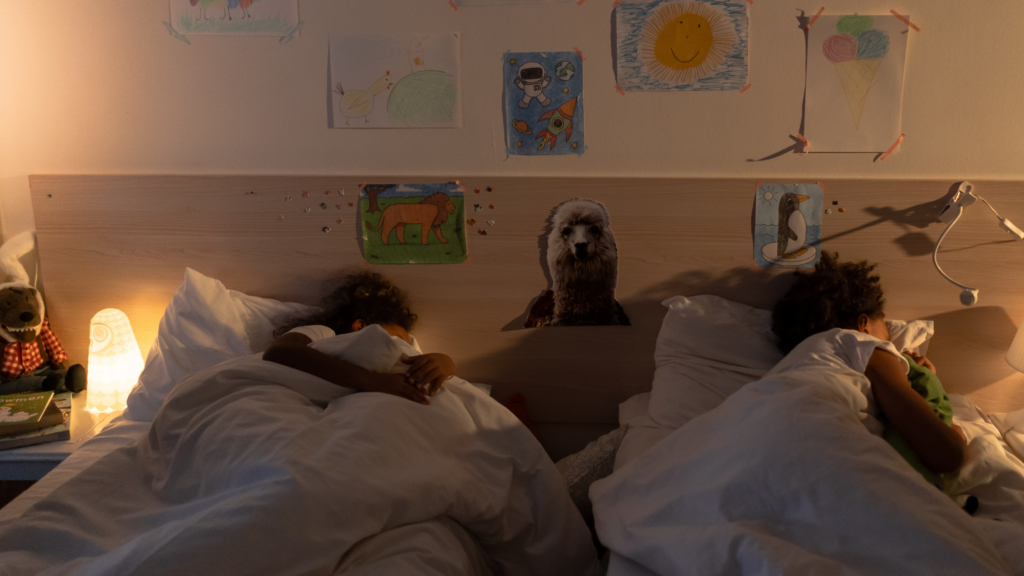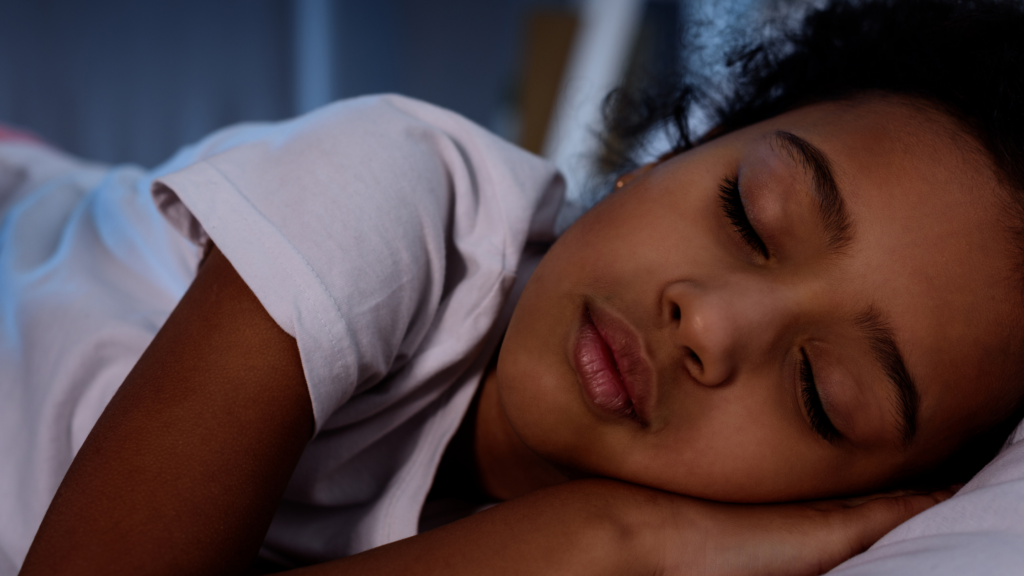Keeping Your Child’s Sleep on Track During Summer Break
As the school year winds down and children enter the long-awaited summer break, their schedules often become much less structured. While this relaxation is part of what makes summer special, it can wreak havoc on children’s sleep patterns. Longer daylight hours provide more opportunities for outdoor evening activities, which can interfere with sleep. Additionally, summer vacations can further disrupt sleep schedules.
The Importance of Good Sleep, Even During Summer
You might wonder why sleep matters so much during the carefree summer months. However, maintaining good sleep habits is crucial for children’s health and well-being, even when school’s out.
Health Risks of Summer Sleep Deprivation
Summer sleep deprivation can potentially lead to more serious problems for kids. Research suggests that insufficient sleep may be a risk factor for type 2 diabetes in children and teens. Additionally, children who sleep less tend to have worse cardiometabolic health, as indicated by larger waistlines, higher blood pressure, and lower levels of “good” cholesterol in the blood

Mental Health and Cognitive Function
In adolescents, inadequate sleep may play a role in the development of depressive symptoms. Furthermore, poor sleep quality and lack of sleep are related to learning and memory problems in both children and adolescents. This means that summer sleep disruptions could potentially impact your child’s mental health and cognitive abilities.
Strategies for Maintaining Healthy Sleep Habits
While summertime sleep disruption is nearly inevitable for most children, parents aren’t helpless against its negative effects. In fact, research shows that the more knowledgeable parents are about children and sleep, the better sleep their children receive. Here are several strategies you can implement to protect your children against the consequences of summertime sleep disturbances.

1. Maintain a Consistent Sleep Schedule
Children, especially adolescents, tend to maintain later sleep and wake times when they don’t have to go to school the next morning. While it’s okay to adjust your children’s sleep schedules to allow them to stay up a bit later during the summer, it’s crucial to keep bedtimes and wake-up times consistent from night to night.
2. Establish a Bedtime Routine
A consistent bedtime routine can help promote a regular sleep schedule. About an hour before bed, encourage your child to start their bedtime routine. This might include:
- Changing into pajamas
- Brushing teeth
- Dimming the lights
- Reading a bedtime story (for younger children)
- Gentle stretches or reading in bed (for older children and teens)
Importantly, make sure they stop using devices during this time. Smartphones, tablets, and TVs emit blue light that can interfere with sleep.
3. Promote Healthy Daytime Habits
Daytime behavior significantly affects nighttime sleep quality. Encourage your children to:
- Engage in physical play or exercise daily: More physically active children tend to fall asleep more quickly at night.
- Eat a healthy diet: While more research is needed, healthier diets likely promote better sleep. Encourage consumption of fruits, vegetables, and whole grains.
4. Create an Ideal Sleep Environment
Adjusting bedroom conditions for summer is crucial for good sleep hygiene:
- Use blackout curtains or eye masks to block out early morning sunlight.
- Turn on a fan or AC to keep the bedroom cool. Hot temperatures can lead to more sleep disruptions.
- Provide light bedding that can be easily adjusted for comfort throughout the night.
5. Manage Vacation Sleep Disruptions
If you’re planning a family vacation or sending kids to summer camp, take steps to minimize sleep disturbances:
- Let kids bring their own pillows and blankets for comfort and familiarity.
- If traveling to a different time zone, gradually adjust bedtimes in the days leading up to the trip.
- Once at the destination, ensure meals are eaten on the new time zone’s schedule.
- Encourage outdoor time during sunny hours to help acclimate the circadian rhythm to the new location

Preparing for Back-to-School
The disruption of summer break doesn’t only affect sleep during the summer—it can also impact the beginning of the next school year. To avoid this, begin preparing for the new school year a week or two in advance:
- If your kids have been staying up and sleeping in later, begin adjusting their bedtimes gradually.
- Aim to have their sleep schedule back on track by the time school starts, ensuring they’re well-rested for the first day.
By implementing these strategies, you can help your children maintain healthy sleep habits throughout the summer, setting them up for success in the upcoming school year. Remember, good sleep is as essential as good nutrition and regular exercise for your child’s overall health and well-being.
Sources
- American Academy of Sleep Medicine – for general information on sleep health and recommendations
- National Sleep Foundation – for sleep tips and resources for parents
- Centers for Disease Control and Prevention (CDC) – for information on the importance of sleep for children’s health
- American Academy of Pediatrics – for pediatric sleep guidelines and advice
- Sleep Research Society – for the latest scientific research on sleep in children and adolescents
- National Institute of Child Health and Human Development – for information on children’s sleep patterns and development
- American Psychological Association – for resources on how sleep affects mental health in children
- Mayo Clinic – for tips on creating a sleep-friendly environment
- Harvard Health Publishing – for articles on the science of sleep and its impact on health
- Sleep.org – for practical sleep advice and tips for families
- National Center for Biotechnology Information – for access to scientific studies on sleep mentioned in the blog
- World Health Organization – for global perspectives on children’s health and sleep
- American Heart Association – for information on how sleep affects cardiovascular health in children
- National Institute of Mental Health – for resources on sleep and mental health in adolescents
- Environmental Protection Agency – for information on creating a healthy sleep environment


